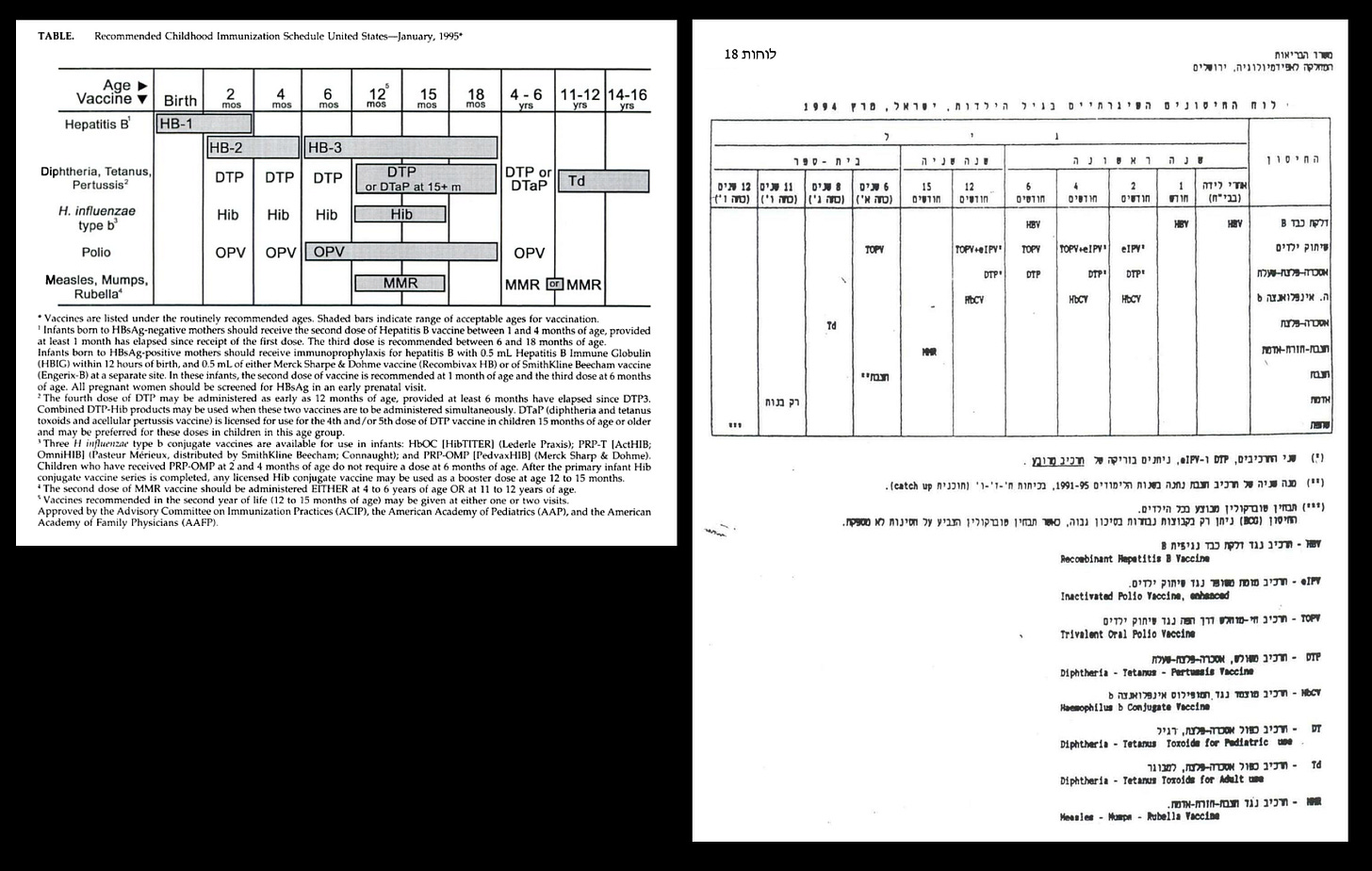How to Create Anti-Vaccine Propaganda About Peanut Allergies
How could vaccines cause a peanut allergy epidemic?
Are you wondering how someone could write a book, now in it’s third edition, blaming vaccines for a peanut allergy epidemic?
“Having read Fraser’s analysis, it seemed almost strange to me that no one had previously connected the dots between the greatly expanded vaccine schedule and the anaphylaxis crisis that preceded.”
Robert F. Kennedy, Jr from his Foreward to The Peanut Allergy Epidemic
Then you don’t understand that anti-vaccine influencers blame vaccines for anything and everything that happens in the minutes, days, months, and years after a person gets vaccinated…
How to Create Anti-Vaccine Propaganda About Peanut Allergies
But peanut allergies?
So how does Heather Fraser make the leap to blaming vaccines for the rise in peanut allergies?
Learning Early About Peanut Allergy (LEAP)
For babies at high risk for peanut allergy, eating peanut foods early and regularly reduced the risk of peanut allergy by more than 80 percent, compared to peanut avoidance. Not expectedly, one of her methods is simply lying!
“As this book unfolds it will become evident that there is a pattern in the way in which the peanut allergy in Western and now non-Western countries has emerged—epidemic levels of peanut allergy in children are now also documented in mainland China, Hong Kong, Singapore, Israel and parts of Africa.”
The Peanut Allergy Epidemic
I’m not sure about all of Africa, but rates of peanut allergies are very low in China and Israel. They are also low in most Asian countries.
Another is simply trying to find events that correlate with the rise in peanut allergies and label them as a cause.
“The peanut-allergy epidemic in children was precipitated by childhood injections. Events leading up to it unfolded in plain sight.”
The Peanut Allergy Epidemic
For example, we began to see a rise in peanut allergies in the 1990s. So the authors of The Peanut Allergy Epidemic figure that the addition of the Hib vaccine to the immunization schedule at around that time must have caused the peanut allergy epidemic.
But they don’t just blame vaccines…
They also think that vitamin K shots have a big part to play.
“At the same time starting in the mid-1980s, it seemed to go without notice that the vitamin K1 prophylaxis became routine for newborns in the United States and many Western countries. ”
The Peanut Allergy Epidemic
They claim that soybean oil in vitamin K shots sensitizes kids to the peanuts they later eat, triggering an allergy. And the vaccines they get make it worse, because of all of the aluminum of course!
What’s the problem with this theory idea?
Well, for one thing, most refined oils, like soybean oil, are unlikely to contain the proteins needed to trigger an allergy or sensitize you to become allergic!

Also, we have been giving many vitamin K shots since the 1940s and it became fairly routine since 1961!
Although the recommendation to give all babies vitamin K shots didn’t come until 2003 AAP policy statement, Controversies concerning vitamin K and the newborn, it had long been standard practice.
So it doesn’t really make sense to blame vitamin K shots, does it?
“Further complicating the outcome of routine vaccination was the apparent homology of the proteins of H. influenzae b in the Hib vaccine and the proteins of peanut.”
The Peanut Allergy Epidemic
And why blame the Hib vaccine?
“My son was first injected with PENTA in Nov. 1994. He reacted badly and the vaccination created allergies to foods including dairy. ”
The Peanut Allergy Epidemic
The author blames their child’s peanut allergy on a combination vaccine they had received, the DPT-IPV with Hib vaccine.
And of course, you can’t blame the DPT and IPV vaccines, because we had been giving those for years already…
Remember though, we aren’t the only country to give these vaccines!
The influence of the vaccine in Israel: in 1994, the Hib vaccine was incorporated into routine vaccines in Israel. Since then, the number of patients suffering from Hib meningitis has dropped from 100 patients a year to only a few cases among unvaccinated individuals.
The Haemophilus Influenzae B (Hib) Vaccine
Why didn’t the Hib vaccine trigger an epidemic of peanut allergies in Israel?
In the past 40 years in Israel, newborns have received an injection of vitamin K immediately after delivery. This is a simple, safe, and life-saving treatment that has been proven effective in preventing bleeding in newborns.
Vitamin K for Babies
Children there have been getting vitamin K shots and the Hib vaccine just like they do in the United States.

What’s different?
Infants in Israel start eating peanut containing products at a very early age!
And that’s why we have new recommendations to introduce age appropriate peanut contraining foods to infants when they are four to six months old, especially if they are high risk (have eczema and/or egg allergies).
Will this put to rest the idea that vaccines are associated with peanut allergies?
It should!
#StopAntiVaccinePropaganda
References
Learning Early About Peanut Allergy (LEAP) https://www.foodallergy.org/resources/learning-early-about-peanut-allergy-leap
American Academy Of Pediatrics| September 01 1961. Report Of Committee On Nutrition : Vitamin K Compounds And The Water-Soluble Analogues. Committee On Nutrition. Pediatrics (1961) 28 (3): 501–507.
Controversies concerning vitamin K and the newborn. American Academy of Pediatrics Committee on Fetus and Newborn. Pediatrics. 2003 Jul;112(1 Pt 1):191-2.
Majid A, Blackwell M, Broadbent RS, Barker DP, Al-Sallami HS, Edmonds L, Kerruish N, Wheeler BJ. Newborn Vitamin K Prophylaxis: A Historical Perspective to Understand Modern Barriers to Uptake. Hosp Pediatr. 2019 Jan;9(1):55-60. doi: 10.1542/hpeds.2018-0104. PMID: 30593456.
The Haemophilus Influenzae B (Hib) Vaccine https://me.health.gov.il/en/parenting/raising-children/immunization-schedule/vaccines-up-to-age-six/mehumash/hib/
Crevel RW, Kerkhoff MA, Koning MM. Allergenicity of refined vegetable oils. Food Chem Toxicol. 2000 Apr;38(4):385-93. doi: 10.1016/s0278-6915(99)00158-1. PMID: 10722892.

